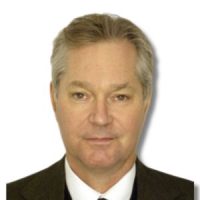
Advisory Board Member
Caspian Policy Center
I have worked in the Eurasian region since the 1980s – nine years in Moscow and over 25 years in Kazakhstan focused on business development, government relations, due diligence, risk assessment and litigation support with ongoing monitoring and analysis of events and trends in business, domestic politics and regional geopolitics.
I have consulted through the years in multiple sectors, including energy, mining and metallurgy, agriculture, banking and legal. My strong suit is understanding the MO of government and business in Kazakhstan, Uzbekistan and other CIS countries while building relationships there with officials and entrepreneurs. Extra fluent in Russian.
Member of the Advisory Board at the Caspian Policy Center in Washington, DC https://caspianpolicy.org since 2022.
I hold B.A. and M.A. degrees in Russian & East European Studies from Yale University.
I reside full-time in Astana.
A Critique of the Narrative on Critical Minerals
I want to speak about the heightened attention being paid to critical minerals in the private sector, government agencies and think tanks and simultaneously examine the issue of whether it is in fact realistic to significantly change the existing situation, where China holds a dominant position. The Trump administration used the U.S. Defense Production Act as the basis for an executive order in April 2025 aimed at sharply increasing critical minerals production in the United States, and recently concluded a much-discussed but little understood critical minerals agreement with Ukraine. The European Union and the five Central Asian countries, at their recent first-ever Summit in Samarkand, talked a great deal about critical minerals, with the EU pledging 12 billion euros for its Global Gateway program to finance projects in Central Asia, including projects for critical minerals. However, I believe the current narrative fails to focus on a key issue -- China's dominant position in critical minerals is based not primarily on producing them (although it has a strong position there) but rather on possessing the technology and industrial capacity for processing critical minerals. Increased production of critical minerals in, say, Central Asia will not change the situation if those minerals are shipped to China for processing. Ramping up US production and processing will not be a quick fix despite the executive order calling for projects to receive expedited review, approval and follow up, as well as loans to qualified companies for those projects that meet the necessary criteria. The fact is, China has a 30-year head start thanks to their foresight, patience and persistence. Those imagining that a battle is beginning right now over the critical minerals necessary for the aerospace, energy, military and telecom sectors need to face the fact the battle, in a sense, already ended, and now, only a concerted, sustained effort by the US, Europe and Gulf nations will make it possible to even put a dent in China’s dominant position. Pini Althaus of Cove Capital, someone whose thoughts on this issue I believe many of you read, and someone who is actually a cautions optimist on this issue, recently stated: “The time to act was years ago; the next best time to act is now.” Such is the truth of this situation.

